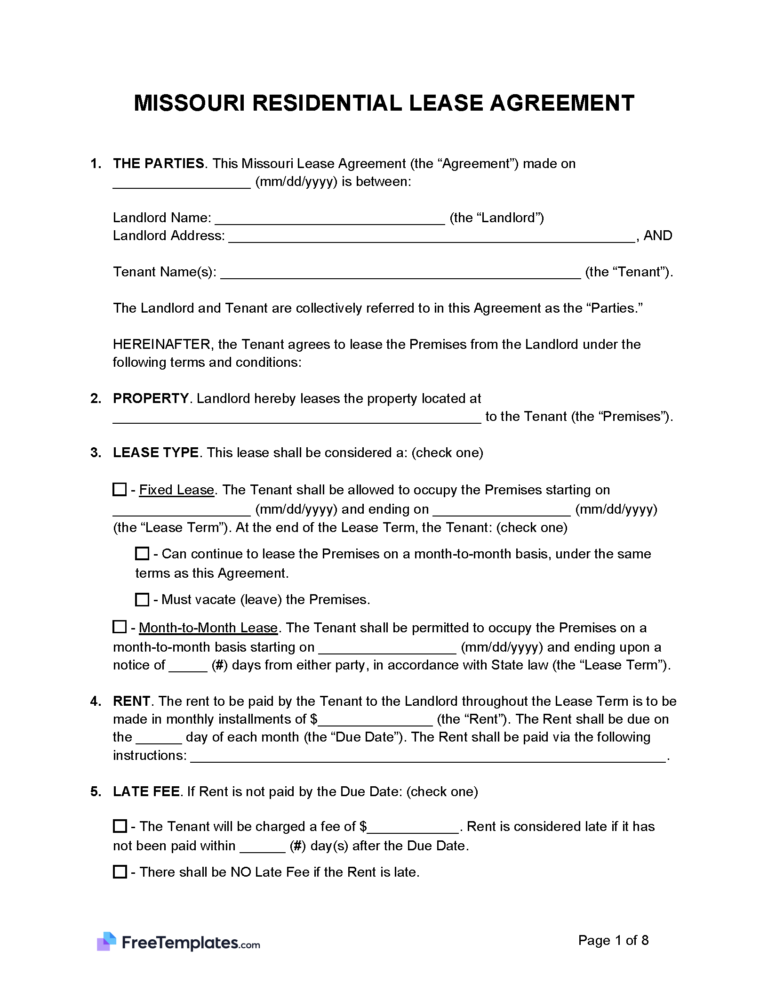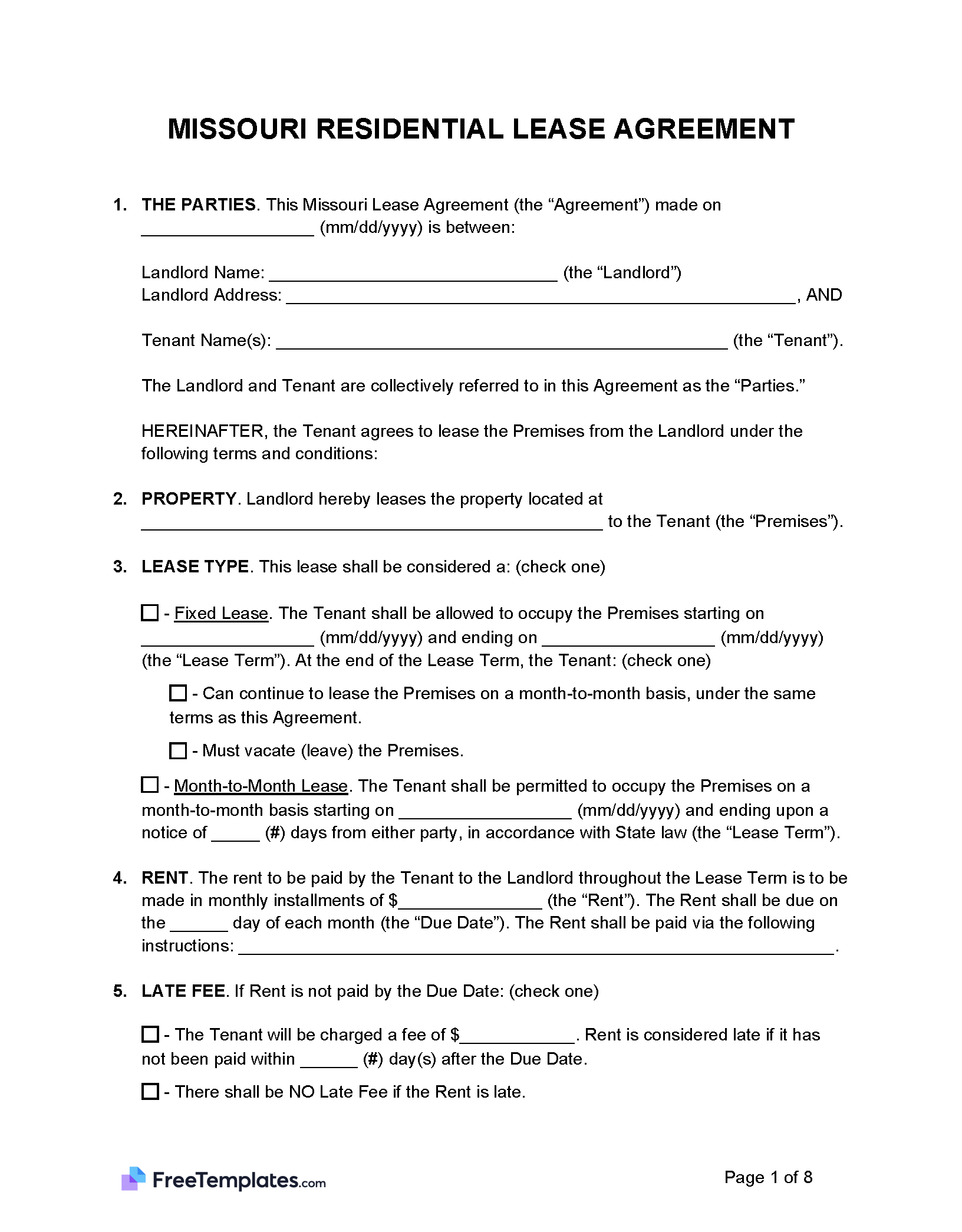By Type (6)
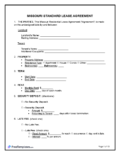 Standard Lease Agreement – A fixed-term contract for renting a residential property, typically for 12 months. Standard Lease Agreement – A fixed-term contract for renting a residential property, typically for 12 months.
|
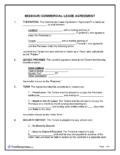 Commercial Lease Agreement – A legally binding rental arrangement between a business and a landlord for commercial or industrial purposes such as office space, retail stores, or restaurants. Commercial Lease Agreement – A legally binding rental arrangement between a business and a landlord for commercial or industrial purposes such as office space, retail stores, or restaurants.
|
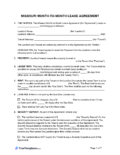 Month-to-Month Lease Agreement – A flexible rental document that renews monthly or until the landlord or the tenant gives proper notice, typically 30 days. Month-to-Month Lease Agreement – A flexible rental document that renews monthly or until the landlord or the tenant gives proper notice, typically 30 days.
|
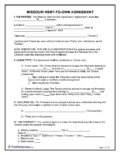 Rent-to-Own Agreement – When a tenant wishes to purchase the rental property later, this outlines the terms and conditions for home ownership. Rent-to-Own Agreement – When a tenant wishes to purchase the rental property later, this outlines the terms and conditions for home ownership.
|
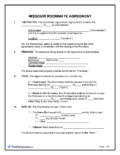 Roommate Agreement – A written understanding between individuals who share a residence that outlines each roommate’s terms, conditions, and responsibilities. Roommate Agreement – A written understanding between individuals who share a residence that outlines each roommate’s terms, conditions, and responsibilities.
|
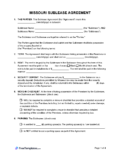 Sublease Agreement – With the landlord’s consent, the tenant (sublessor) can rent out all or part of the property to a new tenant (sublessee). Sublease Agreement – With the landlord’s consent, the tenant (sublessor) can rent out all or part of the property to a new tenant (sublessee).
|
Disclosures (3)
Contact Details – At or before the start of the lease, the landlord must give the tenant in writing the name and address of the person managing the premises and the owner or their authorized agent to receive and document notices and demands. This information must be kept current throughout the term of the lease. (§ 535.185)
Lead-Based Paint Disclosure – To protect renters, particularly children under 6, federal law mandates that landlords of properties built before 1978 disclose information about the dangers of lead-based paint, how to detect symptoms of the hazardous material, and any known lead-based paint on the interior walls of the rental property.
Methamphetamine Production – A landlord of a residential rental unit must disclose in writing if they have any knowledge that the rental unit was ever the site of methamphetamine production, regardless if the person involved was ever convicted. (§ 441.236)
Security Deposit
Maximum Amount – The maximum amount a landlord may request for a security deposit in Missouri is two months’ rent. (§ 535.300(1))
Separate Bank Account? – The landlord does not need to keep the security deposit in a separate bank account; they must keep it in a federally insured financial institution. (§ 535.300(2))
Interest – If any interest is made on the security deposit, then the landlord may keep it for themselves. (§ 535.300(2))
Returning to Tenant – The tenant shall receive their security deposit back from the landlord within 30 days of the lease’s end. (§ 535.300(3))
Itemized List Required? – If there are any deductions to the security deposit, the landlord must provide a list showing the reasoning within 30 days of the lease’s end. (§ 535.300(3))
Landlord Access
General Access – While no law governs whether a landlord may enter their rented property in Missouri, a 24-hour notice is recommended.
Emergency Access – In most states, landlords are granted emergency access. Missouri has no laws regarding emergency access or whether landlords need to give notice.
Paying Rent
Grace Period – Missouri does not have laws regarding late rent payments; therefore, the rent is due on the date agreed to in the lease agreement.
Maximum Late Fee – If the tenant is delinquent with their rent payment, they may be charged a late fee; however, the fee must be listed in the lease beforehand. Missouri does not regulate the maximum late fee amount.
Returned Checks (NSF) – A landlord may charge a $25 fee if a renter writes them a bad check. (§ 570.120(6)(2))
Withholding Rent – If the cost of repairs is less than $300 or half of the rent (whichever is greater but not exceeding 1 month’s rent) and the tenant has lived in the rental property for at least six months, has paid all rent and charges on time, and has not violated any lease rules, the tenant can deduct the cost of repairing a building or housing code violation negatively affects the tenant’s ability to live on the premises. If the repairs exceed this amount, the tenant may give the landlord 14 days’ notice of their intent to repair the condition at the landlord’s expense with an itemized receipt if the condition is not fixed within this time. (§ 441.234(2))
- Maximum Deduction -The tenant cannot deduct more than 1 month’s rent within a 12-month period without notice. (§ 441.234(2))
Reasons for Eviction (2)
Non-Compliance – Tenants who fail to comply with the terms set forth in the lease may be given a 10-day notice to quit or comply. (§ 441.030)
Non-Payment of Rent – If the tenant fails to pay their rent on time, they may be given a verbal or written notice alerting them their rent is due, and if they do not immediately pay, they may be evicted. (§ 535.010)
